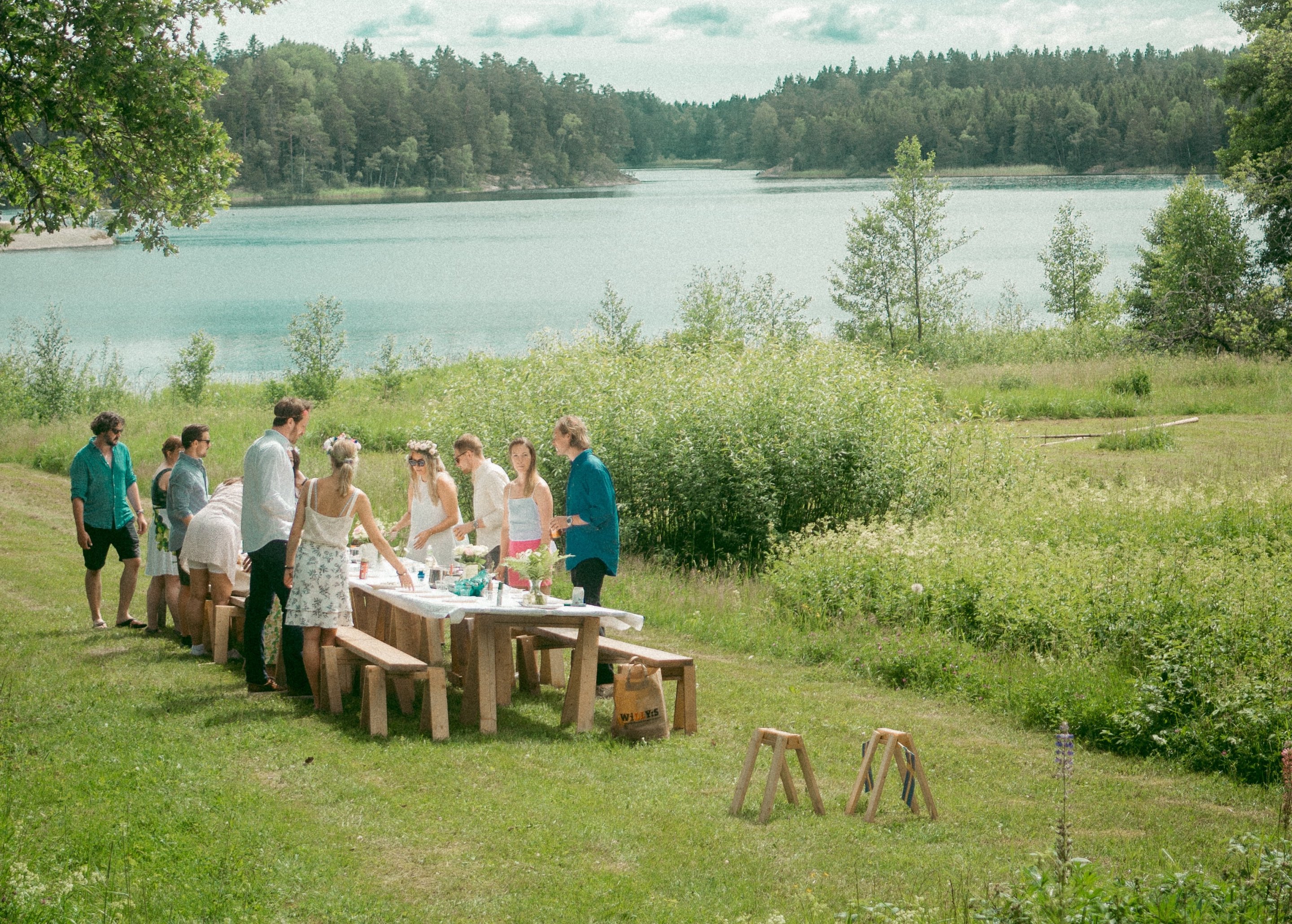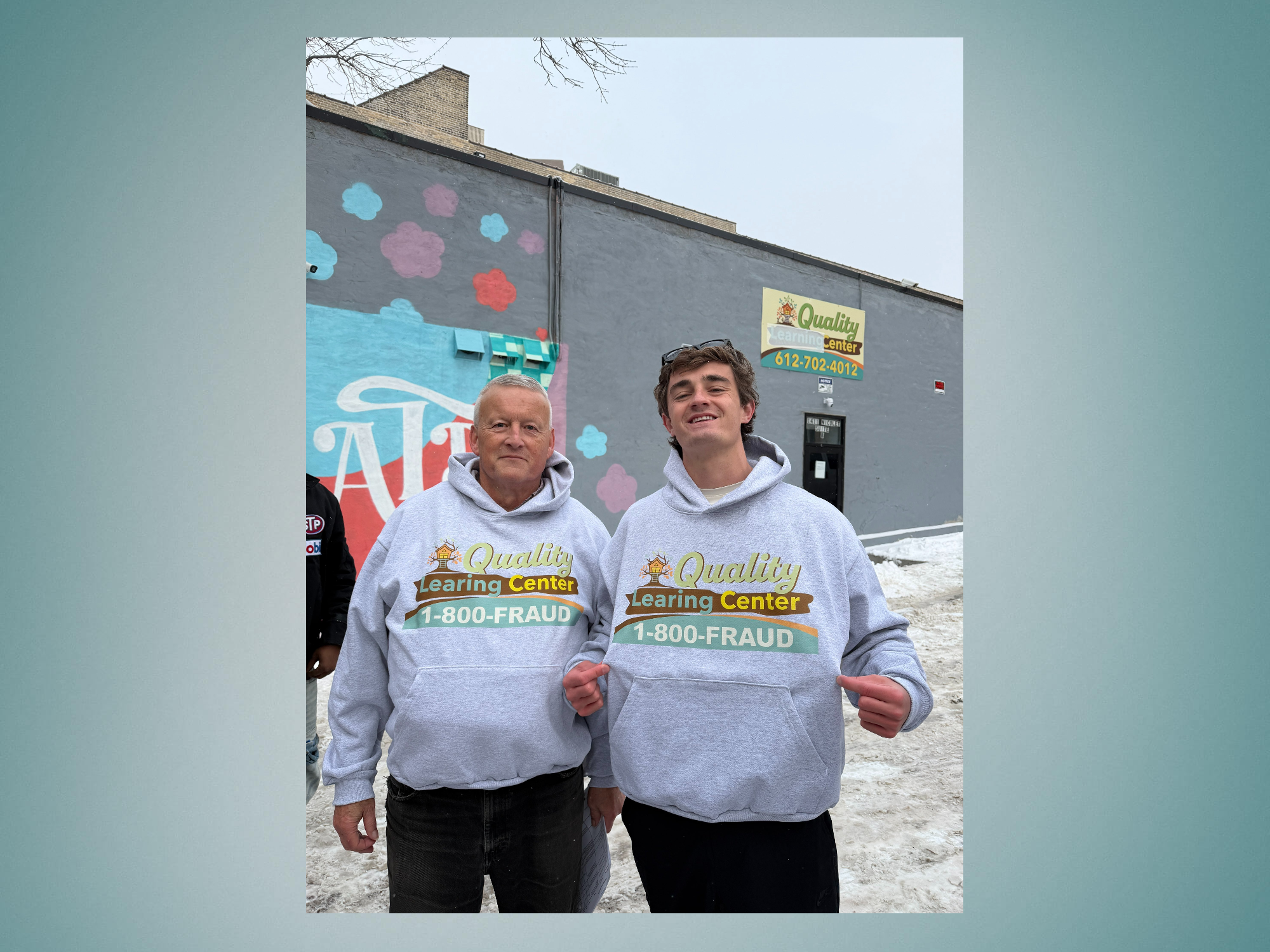Meeting my first witch friend was pure kismet.
I’ve always been interested in spirituality and religion. I moved back home to Minneapolis in 2019 to be a leader at a church, but I was already on the highway to burn-out before the pandemic. (I ended up walking away in 2021.) Ultimately, I knew I was more interested in interfaith communities than I was in recruiting people to attend one church.
I was working part-time at a restaurant. After a full day, I wandered over to Eastlake Craft Brewery to journal. The woman who had trained me earlier happened to be there, too, and we got to talking about spirituality.
A few beers later, she was singing a beautiful song about fire that she had learned at Winter Witch Camp and I was crying. The tune hummed through me in a way that felt ancient and sacred. It was a feeling I’d never experienced outside of church.
It was weird. And it was lovely.
Sometimes It’s Hard to Find a Good Witch
One of the first accounts of Pagan life in Minnesota comes from Dr. Murphy Pizza, PhD, a cultural anthropologist at MCAD. Published in 2014, Pizza’s Paganistan: Contemporary Pagan Community in Minnesota's Twin Cities describes a flourishing wiccan scene, affectionately dubbed “Paganistan” by its members, as unlike anything else in the Midwest.
Pizza estimates that Paganistan, as well as other witch-forward communities in the Twin Cities metro area, has been going strong for over 40 years. But still, the community’s size, scope, and reach often surprises people. While this Minnesota Monthly article estimates that there are at least 20,000 practicing Pagans in town, unless you happen upon a ritual at a nearby park or regularly hang out in an occult shop, they might not be easy to spot.
That’s partly because Pagan communities aren’t as focused on recruiting or getting the word out about their meetups, unlike what you might see with other religious communities. While my life as a church leader was a flurry of ordering big signs or placing ads in newspapers around the holidays, I’ve seen nothing of that sort in the Pagan world. My invitations have been mostly through one-on-one conversations, though one time I was invited to an event via Signal, an encryption app where people use pseudonyms and there’s no last names.
These groups may also be hard to find because there is a wide diversity of beliefs and practices within the community. While most major religions have (mostly) agreed-upon creeds and sacred texts, that’s not necessarily the case for the people at your local Earth-honoring ritual. Some witches are very practical and science-based, while others go full paranormal. “Some even believe in deities and magic, but not everyone,” explains Doe Hoyer, a song-circle leader in south Minneapolis.
Safety could also be a factor, especially when some people equate Wiccans with Devil worship. “There has been a history of persecution of folks identifying as Pagan or a witch,” says Chad Kelly, an ordained minister for Northern Pagan Church, referring to the Satanic Panic of the ‘80s and ‘90s, when hundreds of court cases were built around children’s false memories of ritual abuse. “Families have been torn apart, kids sent to CPS, folks fired from jobs.”
“They literally thought people were having blood rituals and killing people and eating babies,” says self-identified heathen/witch Angela North, who has lived in south Minneapolis’s "witch district" for over 30 years. “Which is, absolutely, not what’s happening. It’s more like, ‘Hey I made this blueberry infused tea and hope I dream about blueberries tonight.’”
That’s where education comes in. Founded by Kelly, Northern Pagan Church offers a variety of primers on what Paganism entails, what it’s not about, and how people can get involved if interested. “It seemed like there was a growing void of community resources around Pagan education, which is why I started Northern Pagan Church,” he says. “I started off with an intro class… then my work evolved into online discussions during Covid.”
Ultimately his goal is to make Paganism more welcoming and inclusive and, maybe in a post-pandemic world, bring back the parties. “It can be hard to find groups that are open to new people,” he admits, “but I would like to see larger celebrations again: the old-school, pre-modern, pagan-style gatherings.”
So, What Does Happen at a Typical Witch Party?
My most recent Earth-centered ritual was in the Heathen Norse community: a sauna ceremony for the Nordic new year. We formed a circle, passed the mead, and shared what we intended to surrender in the New Year. Then everyone got into the hottest sauna I’ve ever experienced–and I’m no sauna novice. I swear my nose ring melted into my body.
For almost an hour, the group sang songs in an ancient Norse tongue with a drum in that sweltering heat (Confession: I only lasted about five minutes, but I stuck around for conversation.) One participant told me he likes to fast before the sauna, because it helps him get into a trance state where he can get fascinating visions.
Pagan meetups can vary. Sometimes there’s singing circles, sometimes there are hikes, sometimes it’s just a group of friends grilling in their backyard. Some think of witchcraft or Pagan practice as their religion, whereas others just want to share their gratitude for the Earth and our ancestors. Some people host big groups and get together regularly, while others prefer small gatherings that are not explicitly Pagan.
And, sometimes, there are fire hazards. “In an attempt to burn a Yule wreath in subzero, arctic windchill weather that year, the ritual attendees had stood around as the wreath was doused repeatedly with lighter fluid,” writes Dr. Pizza in her book. “The air was so cold that evening that the flood was not evaporating, and attempts to light the wreath had failed six times. An attendee that fateful night grumbled, ‘Oh fuck the gentle fire of Spring.’ At that moment, a 30-foot column of flame shot up into the air… they were fortunate not to have celebrated Imbolc that year with the fire department.”
Ultimately, Pagan is an umbrella term that can refer to a variety of things on a spectrum that includes Wiccans, witches, heathens, Druids, and other Earth-based spiritualities. Many of the groups around town have roots in pre-Christian Europe. “Norse Paganism has been booming the last few years,” notes Kelly, laughing. “I think that Vikings TV show raised interest.”
One term that frequently comes up in the witch community is “reclaiming,” the idea of finding connections with the ancient practices of your “people,” whether your ancestors are European, African, or South American. “Reclaiming is about reclaiming your own roots,” explains North. “It can be cultural: like, for someone like me, it goes back to my Finnish roots…For some people it might be that they just really identify with Celtic traditions or something.”
How to Find a Witch Party
In honor of the communal celebrations of Litha/Summer Solstice this Saturday, June 24, we’d like to end this story by highlighting some Earth-centering opportunities available to the general public. Whether you are totally new to honoring the Earth and her seasons or you’re already all-in with your crystals and ancestral altars, here’s how you can deepen your grounding practices this summer. Pay attention to the moon and the changing of the seasons; a lot of things happen around these holidays.
–The Wiccan Church of MN is hosting a Litha celebration this Saturday, June 24, at Richardson Nature Center’s fire pit. Meet at 6 p.m.
–There’s a low-key Wiccan walking group that meets up at the Powderhorn Park Community Center at 6:30 p.m. on full moon nights.
–Both Greenway Yoga and Yess Yoga studios host regular equinox, solstice, full-moon, and astrology-based sessions.
–The Sunday Morning Heretic Sing is specifically encouraged for ex-religious and queer folx. You can join in on the first and third Sundays of each month from 10:30 to 11:30 a.m. at Anam Cara Therapies.
–Anam Cara, in connection to the Cultural Wellness Center, explores Celtic and Germanic cultural practices, as well as the “Sacred Feminine,” through seasonal gatherings which you can find more details about through joining their email list.
–Northern Pagan Church hosts weekly online discussions through Zoom, as well as in-person gatherings.
–Try a Midsommar Blot: A “blot” is a group practice for honoring the seasons and ancestors. The Daughters and Sons of Yta will host a gathering July 10 at Lake Nokomis Community Center.
–This Friday, they’ll also be at White Bear Meadery for a talk titled “Heathenry Lore and Spirituality.”
–Winter Witch Camp is a local yearly retreat in connection to the reclaiming tradition.
–The big one: TC Pagan Pride is on September 9 this year.–Another big one: Paganicon is March 15-17, 2024.






